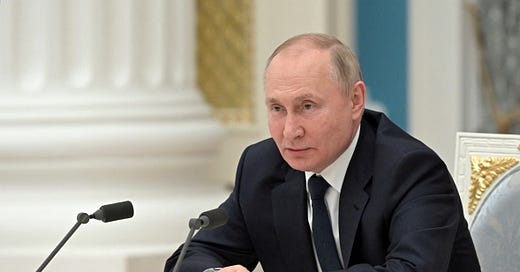Putin Has Passed the Point Of Not Return – The Security and Stability of the World Mean Moving On to the Post-Putin Era.
There is nothing to negotiate with Putin. Russia gambled on force and lost.
The funeral of Edward VII in 1910 preceded the outbreak of the First World War by four years. Could it be that the funeral of his great-granddaughter, Elizabeth II, preceded the outbreak of World War III by only four months? We are not there yet, but this scenario, always highly improbable, is nevertheless becoming possible.
I am a natural optimist and I…
Keep reading with a 7-day free trial
Subscribe to Sylvain Saurel’s Newsletter to keep reading this post and get 7 days of free access to the full post archives.




